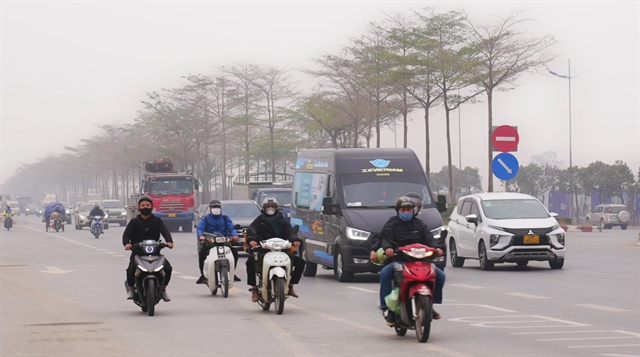 Opinion
Opinion

 |
| People living in Viet Nam’s major cities are frequently exposed to harmful levels of air pollution. Tackling this urgent issue requires stronger, more coordinated, and cross-sectoral efforts to address pollution at its root causes. — Photo courtesy of the WHO |
Dr Angela Pratt, Ramla Khalidi & Silvia Danailov*
After another winter of choking air pollution in Việt Nam’s major cities, with daily PM2.5 levels in Hà Nội regularly exceeding levels of 200, the front-page headline in the Việt Nam News on 10 March 2025 was both decisive and encouraging: “Việt Nam needs paradigm shift in mindset to tackle air pollution”.
Indeed, in the last six months, there has been very strong political leadership and recognition at the highest levels of Government of the significance of the air pollution problem, as well as unprecedented commitment to addressing it.
From the very top, the message is clear. General Secretary Tô Lâm has consistently emphasised the importance of balancing economic growth with environmental protection.
The Government’s first Resolution of 2025 prioritises urgent action on air pollution. Minister of Agriculture and Environment Đỗ Đức Duy has set out key tasks for the environment sector to strengthen air quality management in 2025.
Deputy Health Minister Nguyễn Thị Liên Hương led Việt Nam’s delegation to the WHO’s International Conference on Air Pollution in Colombia.
And a few weeks ago, Deputy Prime Minister Trần Hồng Hà chaired a high-level Government meeting on comprehensive and urgent measures to address air pollution in major cities. More recently, in a landmark demonstration of the cross-sectoral nature of the challenge, the Ministry of Agriculture and Environment and the Ministry of Health jointly held a national scientific conference on tackling air pollution.
This is a moment of real opportunity.
Political momentum, public awareness and institutional focus are converging. Now, we must translate this momentum into timely, sustained and coordinated action that makes a difference.
The costs of inaction or delay are far too high. Air pollution in Việt Nam is estimated to cause tens of thousands of premature deaths each year and it imposes social and economic losses of more than US$13 billion every year, or 4 per cent of gross domestic product (GDP), according to the World Bank.
Children under five are disproportionately affected. Exposure to polluted air can impair lung development, increase the risk of chronic disease and even hinder cognitive development. These impacts can last a lifetime. Yet, these effects are preventable. We must take action to tackle the root causes of air pollution and put in place measures to mitigate its worst effects.
On this World Environment Day, United Nations agencies in Việt Nam pledge support to the Government's commitments addressing air pollution with the goal of contributing to tangible improvements in air quality and in people’s lives. To bring these commitments to life, UN agencies recommend stronger and more comprehensive action to reduce emissions at their source – including in transport, industry, waste management and agriculture.
These changes require time – and in some cases, structural changes to the economy, as part of Việt Nam's overall green transition for sustainable economic growth. But while long-term transformation is essential, immediate measures can be taken:
Effective coordination will be vital – across ministries, cities, provinces, development actors, enterprises and communities.
In all of these areas, Việt Nam can build on global experience, drawing on lessons from cities and countries that have successfully addressed air pollution. We have seen that it is possible to make significant improvements in air pollution – and reap the huge health and other benefits – in a very short time.
At the recent P4G Summit in Hà Nội, Prime Minister Phạm Minh Chính said: “Let us join hands and contribute responsibly for the green future of the world, turning commitments into actions, ideas into concrete projects, and consensus into strong determination for implementation, towards a sustainable and prosperous future.”
We echo this call.
Let us work together – across government, the private sector, civil society, media and communities themselves – to make clean air a reality for everyone.
UNDP, UNICEF and WHO are proud to stand with the people and Government of Việt Nam to advance bold, practical and inclusive solutions for clean air, blue skies and a healthier and more prosperous future.
*Dr Angela Pratt is the World Health Organization (WHO) Representative in Việt Nam, Ramla Khalidi is the United Nations Development Programme (UNDP) Representative in Việt Nam and Silvia Danailov the UNICEF Representative in Việt Nam. — VNS

.jpg)


